Filter by
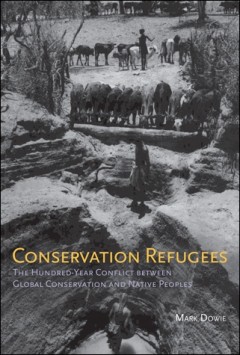
Conservation refugees The Hundred-Year Conflict between Global Conservation a…
How native people--from the Miwoks of Yosemite to the Maasai of eastern Africa--have been displaced from their lands in the name of conservation. Since 1900, more than 108,000 officially protected conservation areas have been established worldwide, largely at the urging of five international conservation organizations. About half of these areas were occupied or regularly used by indigenous peop…
- Edition
- -
- ISBN/ISSN
- -
- Collation
- 1 online resource (376 pages).
- Series Title
- -
- Call Number
- -
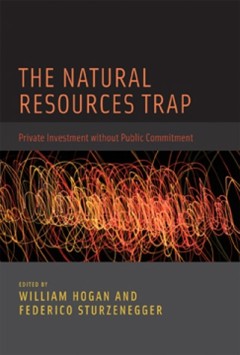
The natural resources trap :private investment without public commitment
Volatility in commodity prices has been accompanied by perpetual renegotiation of contracts between private investors in natural resource production and the governments of states with mineral and energy wealth. When prices skyrocket, governments want a larger share of revenues, sometimes to the point of nationalization or expropriation; when prices fall, larger state participation becomes a bur…
- Edition
- -
- ISBN/ISSN
- 9780262275538
- Collation
- 1 online resource (xiv, 519 pages) :illustrations
- Series Title
- -
- Call Number
- -
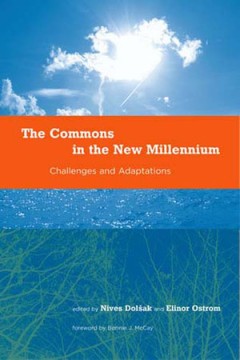
The Commons in the New Millennium: Challenges and Adaptation
Based on papers given at the 2000 conference held in Bloomington, Indiana.Globalization, population growth, and resource depletion are drawing increased attention to the importance of common resources such as forests, water resources, and fisheries. It is critical that these resources be governed in an equitable and sustainable way. The Commons in the New Millennium presents cutting-edge resear…
- Edition
- -
- ISBN/ISSN
- 9780262271868
- Collation
- 1 online resource (xxiv, 369 pages) :illustrations, map.
- Series Title
- -
- Call Number
- -
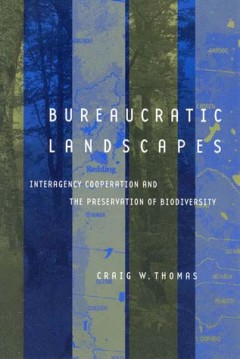
Bureaucratic landscapes :interagency cooperation and the preservation of biod…
Political scientists have long been concerned about the tension between institutional fragmentation and policy coordination in the U.S. bureaucracy. The literature is rife with examples of agencies competing with each other or asserting their independence, while cooperation is relatively rare. This is of particular importance in policy areas such as biodiversity, where species, habitats, and ec…
- Edition
- -
- ISBN/ISSN
- 9780262284882
- Collation
- 1 online resource (xxii, 353 pages).
- Series Title
- -
- Call Number
- -
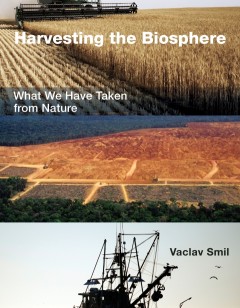
Harvesting the biosphere :what we have taken from nature
An interdisciplinary and quantitative account of human claims on the biosphere's stores of living matter, from prehistoric hunting to modern energy production. The biosphere—the Earth's thin layer of life—dates from nearly four billion years ago, when the first simple organisms appeared. Many species have exerted enormous influence on the biosphere's character and productivity, but none …
- Edition
- -
- ISBN/ISSN
- 9780262312264
- Collation
- 1 online resource
- Series Title
- -
- Call Number
- -

Cosmopolitan commons :sharing resources and risks across borders
"With the advent of modernity, the sharing of resources and infrastructures rapidly expanded beyond local communities into regional, national, and even transnational space -- nowhere as visibly as in Europe, with its small-scale political divisions. This volume views these shared resource spaces as the seedbeds of a new generation of technology-rich bureaucratic and transnational commons. Drawi…
- Edition
- -
- ISBN/ISSN
- 9781461931164
- Collation
- 1 online resource.
- Series Title
- -
- Call Number
- -

Conservation refugees :the hundred-year conflict between global conservation …
How native people--from the Miwoks of Yosemite to the Maasai of eastern Africa--have been displaced from their lands in the name of conservation. Since 1900, more than 108,000 officially protected conservation areas have been established worldwide, largely at the urging of five international conservation organizations. About half of these areas were occupied or regularly used by indigenous peop…
- Edition
- -
- ISBN/ISSN
- 9780262322515
- Collation
- 1 online resource (376 pages).
- Series Title
- -
- Call Number
- -
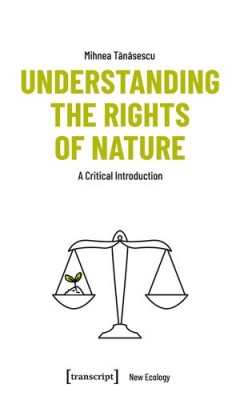
Understanding the Rights of Nature : A Critical Introduction
Rivers, landscapes, whole territories: these are the latest entities environmental activists have fought hard to include in the relentless expansion of rights in our world. But what does it mean for a landscape to have rights? Why would anyone want to create such rights, and to what end? Is it a good idea, and does it come with risks? This book presents the logic behind giving nature rights and…
- Edition
- -
- ISBN/ISSN
- 9783839454312
- Collation
- -
- Series Title
- -
- Call Number
- 333 TAN u
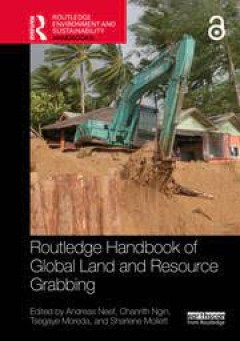
Routledge Handbook of Global Land and Resource Grabbing
This handbook provides a cutting-edge, comprehensive overview of global land and resource grabbing. Global land and resource grabbing has become an increasingly prominent topic in academic circles, among development practitioners, human rights advocates, and in policy arenas. The Routledge Handbook of Global Land and Resource Grabbing sustains this intellectual momentum by advancing methodologi…
- Edition
- -
- ISBN/ISSN
- 9781000902358
- Collation
- -
- Series Title
- -
- Call Number
- -
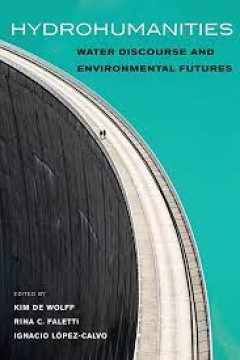
Hydrohumanities Water Discourse and Environmental Futures (Edition 1)
A free open access ebook is available upon publication. Learn more at www.luminosoa.org. Discourse about water and power in the modern era have largely focused on human power over water: who gets to own and control a limited resource that has incredible economic potential. As a result, discussion of water, even in the humanities, has traditionally focused on fresh water for human use. Today, cl…
- Edition
- -
- ISBN/ISSN
- 9780520380462
- Collation
- -
- Series Title
- -
- Call Number
- -
 Computer Science, Information & General Works
Computer Science, Information & General Works  Philosophy & Psychology
Philosophy & Psychology  Religion
Religion  Social Sciences
Social Sciences  Language
Language  Pure Science
Pure Science  Applied Sciences
Applied Sciences  Art & Recreation
Art & Recreation  Literature
Literature  History & Geography
History & Geography